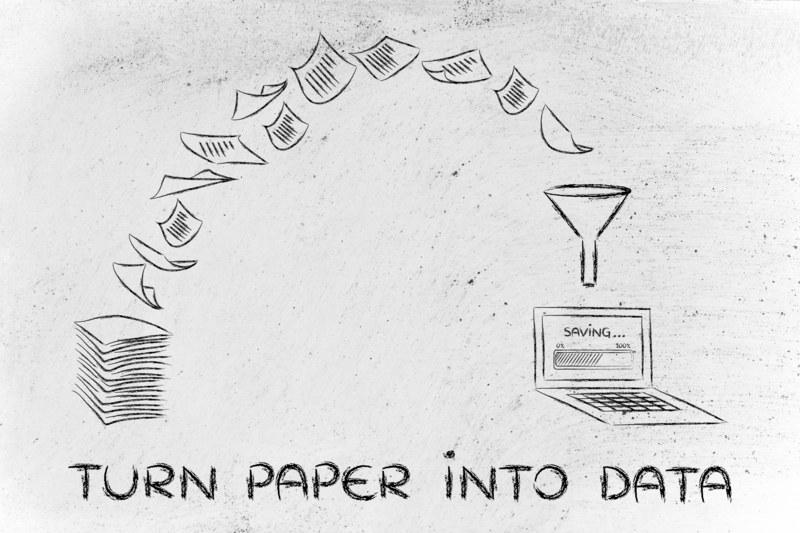Mistakes to Avoid When Hiring a Skip
Hiring a skip is a convenient and efficient way to manage waste during home renovations, garden cleanups, or construction projects. However, many individuals and businesses make avoidable errors throughout the process, leading to unexpected costs, fines, or safety issues. To help you make an informed decision, this comprehensive guide highlights the most common mistakes to avoid when hiring a skip, offering expert advice and actionable tips to streamline your waste management journey. Whether you're searching for information on residential or commercial skip hire, knowing these pitfalls is crucial.

Why Hiring the Right Skip Matters
Making *sound decisions* when it comes to skip hire can save you time, money, and legal headaches. A well-chosen skip ensures waste is efficiently collected, transported, and disposed of, aligning with local regulations and environmental best practices. Ignoring critical factors might not just hit your pocket but can also lead to environmental damage or community complaints. This is why knowing the mistakes to avoid when renting a skip is so important.
Common Skip Hire Mistakes & How to Prevent Them
1. Underestimating or Overestimating Skip Size
One of the biggest errors when arranging a skip rental is selecting the wrong size. Underestimating your waste volume may lead to overloading the skip, risking extra fees, or even having to order an additional skip. On the flip side, overestimating could mean paying for space you don't need.
- Assess your waste type and quantity accurately. Make a list of what you're throwing out and discuss with the skip provider to estimate the most suitable size--whether mini, midi, builder's skip, or a larger roll-on roll-off.
- Remember: skips come with a "do not fill above this line" marker. Overfilling is prohibited and can delay collection.
- Tip: It's often safer to choose a slightly bigger skip if you're unsure, as the incremental cost is usually less than arranging a second skip.
2. Not Checking Allowed and Prohibited Waste Items
Many people make the mistake of assuming that skips can handle all waste types. However, there are strict regulations around what can and cannot be placed in a skip.
- Prohibited items typically include: electrical goods, batteries, asbestos, tyres, paints, solvents, fluorescent bulbs, medical waste, gas canisters, and hazardous chemicals.
- Check with the skip hire company for a comprehensive list before loading your waste.
- Improperly disposing of hazardous waste can result in fines or even criminal charges.
3. Failing to Secure a Permit for On-Street Placement
Where you position your skip matters. If your skip needs to be placed on a public road or verge, most local councils require a permit. Skipping this step is a common mistake leading to legal trouble or forced removal of the skip.
- Contact your local authority or the skip hire provider to arrange a permit in advance. The skip hire company can often manage this for you for an added fee.
- Penalties for unpermitted on-street skips can be hefty, and your skip could be confiscated, leaving you with more waste management headaches.
- Some locations have specific rules regarding night-time visibility, signage, and lighting for skips kept on a public highway.
4. Overlooking Access and Delivery Requirements
Don't forget logistical details--can the skip lorry access your property? Obstructions like parked cars, low-hanging branches, or narrow driveways can cause delays or even make delivery impossible.
- Clear the pathway well in advance and measure gates and driveways to ensure enough space.
- Inform your neighbours if a skip will temporarily block shared driveways or streets to avoid disputes.
- Don't place skips under trees or power lines--these can hinder drop-off and collection.
5. Ignoring Weight Limits
Each skip size has a maximum weight allowance, especially for heavy waste like soil, concrete, bricks, and rubble. Overloading by weight, not just volume, is a common but costly oversight when arranging a skip.
- Check weight limits for your chosen size, and if disposing of heavy waste, ask the hire company for guidance.
- Some skips are suitable only for lighter general waste--heavier loads may require builder's skips or even specialised bins.
- Exceeding the weight limit can result in additional charges, refusal to collect, or penalties.
6. Neglecting to Compare Prices and Services
Skip hire costs vary depending on size, location, duration, and waste type. Many customers simply book the first provider they find rather than comparing prices, services, and reviews.
- Obtain at least three quotes from reputable companies to ensure competitive pricing and transparency regarding hidden fees.
- Check for included services: Are disposal fees, permits, or VAT included in the price?
- Read online reviews and ask about sustainable waste management practices.
- Avoid the mistake of hiring unlicensed or uninsured operators--there's a risk of illegal dumping which can result in large fines for you as the waste owner.
7. Failing to Consider Environmental Impact
In an era of increasing eco-awareness, environmentally responsible waste disposal is more important than ever. Not asking your skip company about their recycling practices is a missed opportunity to reduce your carbon footprint.
- Inquire about recycling rates and what happens to your waste after removal.
- Choose providers who prioritise recycling or re-use over landfill disposal.
- Sustainable skip services not only benefit the planet, but can often be more cost-effective in the long run.
8. Forgetting the Importance of Skip Hire Duration
Another common mistake in skip rental is underestimating how long you'll need the skip. Overrunning your hire period can result in daily penalty charges, while finishing early may waste your money.
- Plan your waste clearance project timeline accurately.
- Book extra days upfront if unsure--it's normally cheaper than extending on short notice.
- Always notify the provider if you finish early, as some may collect sooner and refund unused days.
9. Loading the Skip Inefficiently
Poor skip loading means wasted space and higher costs. Haphazardly tossed waste creates voids, costing you money and maybe even requiring a larger skip than necessary.
- Break down bulky items like furniture or boxes to maximise space.
- Fill gaps with smaller materials such as soil or loose debris.
- Place flat items (doors, panels) at the bottom to create a solid base for heavier materials.
10. Not Considering Local Regulations and Responsible Operators
Ensuring compliance with local waste disposal laws is crucial. Cheap, unlicensed skip hire is a big mistake that may result in your waste being fly-tipped--making you liable for prosecution and cleanup costs.
- Always check that your skip provider holds appropriate waste carrier licenses and public liability insurance.
- Ask for proof of licensing or look them up on official government websites.
- Use trusted, local companies with established reputations for peace of mind.
Additional Tips to Ensure a Smooth Skip Hire Experience
- Book your skip ahead of time, especially during busy periods like spring or summer renovation booms.
- Keep your skip covered when not in use to prevent rain damage and stop others from dumping waste illegally in your skip.
- Place the skip on a solid surface to avoid damage to lawns or driveways--use protective boards if needed.
- Check with your provider about collection schedules and procedures for full or overloaded skips.

Frequently Asked Questions About Skip Hire Mistakes
What happens if I put prohibited items in a skip?
Your skip may not be collected until the prohibited materials are removed, and you may face extra charges or fines. Always check with your skip provider for a full list of restricted items before loading.
How do I estimate the right skip size?
Discuss your project and waste type with the hire company. Most have online calculators or experienced staff who can assess your needs based on item lists or project scope.
Do I need a permit for a skip on private property?
No permit is required for skips kept entirely on private land (your driveway or yard), but you'll need one for any part of the skip encroaching onto a public road or pavement.
Conclusion: Avoiding Costly Mistakes When Hiring a Skip
By being proactive, diligent, and fully informed, you can make skip hire a hassle-free, affordable, and responsible part of any renovation or clean-up project. The key mistakes to avoid when hiring a skip include not checking prohibited items, underestimating size and access, skipping necessary permits, ignoring local laws, and failing to compare reputable operators.
Take the time to research, ask questions, and double-check all logistical details with your chosen provider. It will save you money, stress, and potential legal trouble, while also supporting safer and more sustainable waste management in your community.
For more tips and trustworthy advice on all things skip rental, subscribe to our newsletter or consult our expert team today!
- Contact a reputable, licensed skip hire provider in your area for tailored advice.
- Always ask for documentation and read reviews before making a decision.
- By avoiding these common errors, you can maximise value, ensure compliance, and make your waste disposal project a smooth success.